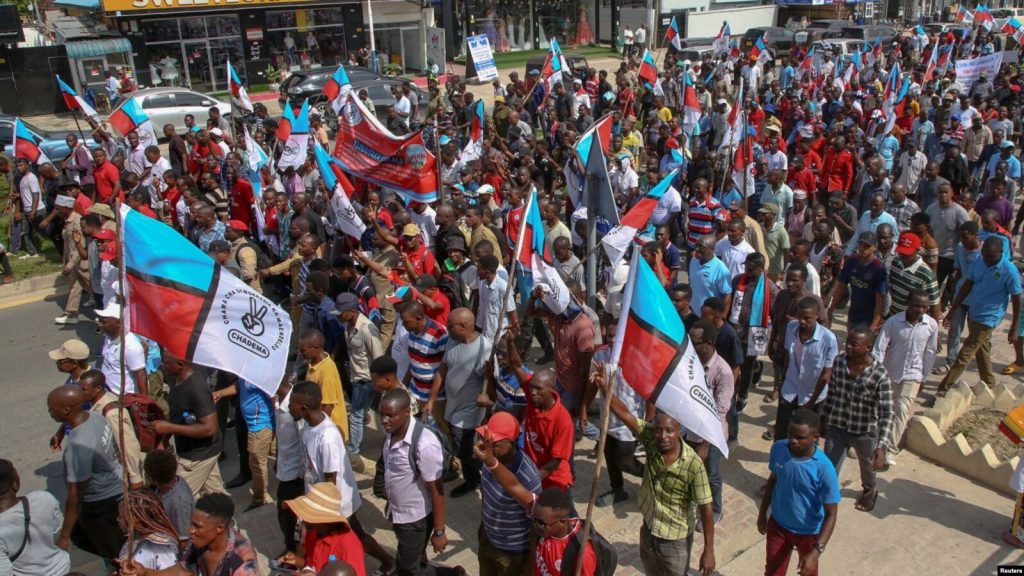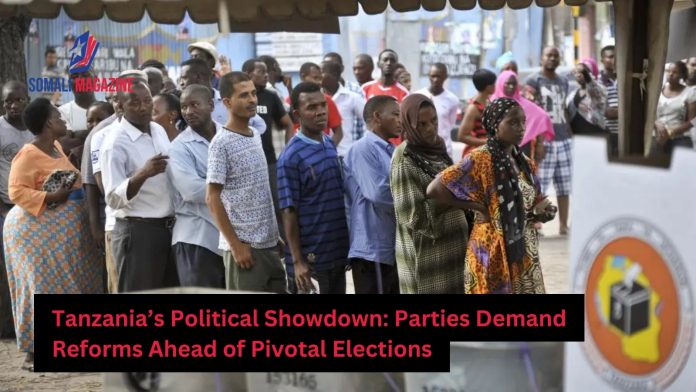Facebook Twitter Instagram Somali Magazine - People's Magazine
As Tanzania gears up for its highly anticipated October 2025 general elections, political parties are intensifying their calls for comprehensive reforms to ensure a fair and transparent electoral process. The upcoming elections, which will determine the country’s next president, members of parliament, and local government leaders, have already sparked heated debates over the state of democracy and governance in the East African nation.
The ruling Chama Cha Mapinduzi (CCM) party, led by President Samia Suluhu Hassan, has been vocal about its commitment to maintaining stability and continuity. President Hassan, who is seeking re-election, has emphasized the importance of upholding democratic principles while addressing the nation’s pressing economic and social challenges. CCM’s recent internal meetings have focused on solidifying its campaign strategy, with the party positioning itself as a champion of progress and development.
On the other hand, opposition parties, including Chadema and ACT-Wazalendo, are pushing for significant political and electoral reforms. Chadema, under the leadership of Tundu Lissu, has called for the establishment of an independent electoral commission to oversee the elections. The party argues that the current system, which allows the president to appoint electoral commissioners, undermines the credibility of the process. Lissu has also demanded greater transparency in campaign financing and equal access to media coverage for all candidates.
ACT-Wazalendo, led by Zitto Kabwe, has echoed similar concerns, urging the government to address issues of voter suppression and electoral violence. The party has proposed amendments to the Political Parties Act and the Elections Expenses Act to level the playing field for all participants. Kabwe has also called for international observers to monitor the elections, citing the need for impartial oversight to ensure a free and fair process.
The push for reforms has gained momentum following the passage of three key bills in February 2024, which introduced changes to Tanzania’s electoral framework. These include the establishment of the Independent National Electoral Commission (INEC), a rebranding of the previous National Electoral Commission. The reforms also introduced a competitive hiring process for electoral commissioners and removed the automatic declaration of unopposed candidates as winners. While these changes have been hailed as a step in the right direction, opposition parties argue that more needs to be done to address systemic issues.

Political analysts have noted that the upcoming elections will be a litmus test for Tanzania’s democratic institutions. Dr. Richard Mbunda, a political scientist at the University of Dar es Salaam, highlighted the significance of the reforms in shaping voter confidence. “The reforms are a positive development, but their implementation will be crucial. The credibility of the elections will depend on how well these changes are enforced,” he said.
The international community has also weighed in on the debate, with organizations such as the United Nations and the African Union urging Tanzania to uphold democratic values. The U.S. Embassy in Dar es Salaam has called for inclusive dialogue among political stakeholders to address outstanding concerns and ensure a peaceful electoral process.
As the October elections draw closer, the stakes are high for both the ruling party and the opposition. For CCM, the challenge lies in maintaining its dominance while addressing public grievances over issues such as unemployment and corruption. For the opposition, the focus is on mobilizing support and advocating for reforms that level the playing field.
The coming months will be critical in determining the trajectory of Tanzania’s political landscape. With parties digging in for proper reforms, the nation stands at a crossroads, where the choices made today will shape its democratic future.

